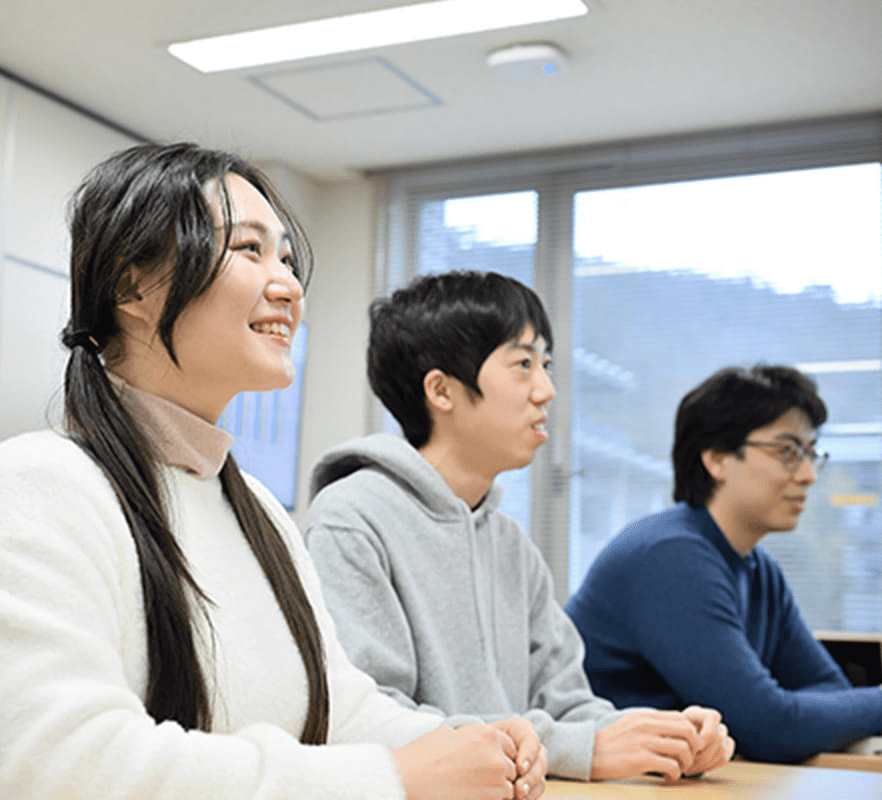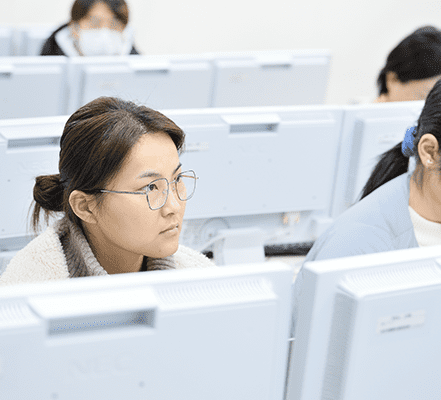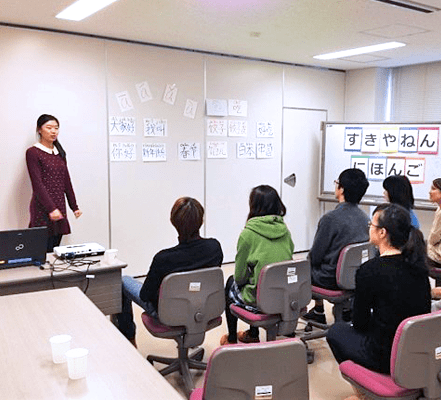
Programs
School Internship/ School Volunteer/ Educational Support

Based on an agreement with Kyoto Prefectural Yamashiro High School, we offer a course “E08-English Teaching Internship” for graduate students who aim to become English teachers. Once a week, they have the chance to assist English classes and thereby gain hands-on experience of educational activities. In this way, over one year, students can observe how the latest pedagogic theories are implemented, and how student guidance and classroom management are conducted. It is a valuable opportunity to observe the progress high school students make.
Additionally, there is also the chance to serve as a “school volunteer” to assist English teachers, and also as a “educational supporter” to support international high-school students with their learning of Japanese and cross-cultural communication. However, credits are not given for these courses.
Japanese Language Teaching Practice

The Japanese Language Education Course provides opportunities for teaching practice (course name: “J13- Japanese Language Practicum (Japanese Language Teaching Practice)”) at Japanese language education institutions in Japan and overseas. These take place over two weeks in Japan or three weeks overseas. The teaching practice, which students participate in after attending preliminary guidance, includes lesson observation, selection of teaching materials and preparation of lesson plans. In addition, there is classroom practice in which students are actually in charge of a class. Also, during feedback after the practical training, lesson plans and videos of the teaching sessions are reviewed and discussed to build upon what was learned during the training period.
Teaching practices are run at the following institutions: Ritsumeikan Asia Pacific University, the Kyoto Japanese Language School, Kyoto Institute of Culture and Language in Japan. Overseas, there is Dalian University of Foreign Languages and Shenzhen University, both in China, Gachon University in Korea, Chang Jung Christian University in Taiwan, Ho Chi Minh City University of Education in Vietnam and Griffith University in Australia.
※Only graduate students belonging to the Japanese Language Education Course can participate.
The Japanese Language Education Project Aiming to Promote Intercultural Cohesion

This project consists of three pillars: Japanese language support for local residents, including international students at Ritsumeikan University, cultural exchange activities, and academic lectures/workshops. In particular, “Sukiyanen Nihongo” is an initiative which offers support for learners of Japanese and promotes cultural exchange. It is an environment for learning in which graduate students take the initiative and collaboratively manage the program while making the most of their individual strengths, such as shared native languages with the international students. Cultural exchange activities include walking tours of nearby Arashiyama and Ninna-ji Temple, as well as on-campus events.
